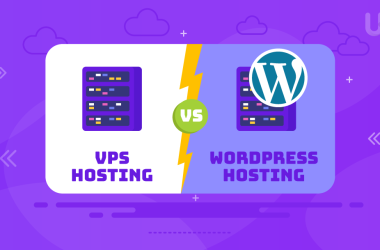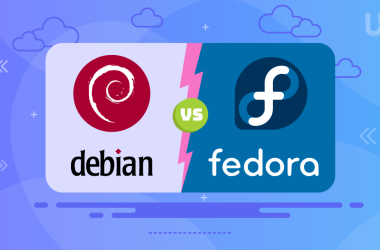Are you starting a website but can’t figure out which platform is best? Wix, Webflow, or WordPress are pretty big names and sound tempting, but you have only one choice at the end of the day. Don’t worry; we won’t confuse you. In fact, to make your decision process easier, we have jotted down a comprehensive guide. So, keep reading because, by the end of this blog, you will be sure about your choice.
A strong online presence is equally important for individuals and e-commerce websites; we can’t neglect it anymore. So, whether you’re a blogger, an entrepreneur, or a large business, your website is your target audience’s first point of contact. If you don’t have a website yet, you are missing many potential opportunities. Therefore, without further let’s go towards the basic understanding!
Understanding Your Website Needs
Before diving into the specifics of each platform, it’s essential to take a step back and understand what your website requires.
Identifying Your Website’s Goals and Objectives
First and foremost, consider why you’re making a website. Do you want to show off your portfolio, sell items, provide information, grow your small business, or create a blog? Understanding the principal role of your website will assist you in selecting a platform. Take the time to describe your objectives thoroughly.
Analyzing Your Target Audience
Consider the expectations of your audience. What do they expect from your website? Do they prefer a simple, informational experience, or do they prefer interactive components and a fancy design? Conduct surveys or research to discover more about your target audience’s preferences.
Determining the Complexity of Your Website Project
Consider the scope and complexity of your project. Is it a simple personal blog, a small business website, or a complex e-commerce platform with hundreds of products that require enterprise hosting? The complexity of your project will determine which platform is best for you. Be honest with yourself about the scope of your work.
Platform Comparison
Now, let’s dive into the specifics of each platform—Wix, Webflow, and WordPress—so you can make an informed choice.

Wix: Easy to Use and Quick to Setup
Wix is well-known for its user-friendly interface and large library of pre-designed templates. It’s an excellent option for anyone searching for a quick, simple website setup. So, even if you are not from a tech field, you don’t have to worry because Wix has made everything simple.
Overview: Wix offers drag-and-drop website builders, a big template library that cuts your work in half, and integrated hosting. It is the best option if you are looking for a simple website. The interface is user-friendly, making it suitable for beginners without coding experience. With Wix, you can have your site up and operating quickly.
Pricing Point: It has both free and premium pricing options, making it cost-effective. You can choose the pricing structure that is best suited to your requirements.
Pros: It is simple to set up and use, making it suitable for small businesses.
Cons: For advanced users, there are few customization possibilities. If you want a complex website, you may face a lot of limitations.
Webflow: Design Flexibility and Customization
Webflow stands out for its wide customization options and design flexibility. It’s an excellent alternative for everyone who values design and customization.
Overview: Webflow provides powerful design tools, the capacity to create novel interactions, and CMS (Content Management System) capabilities. It is suitable for applications requiring high design standards.
It gives you complete control over your website’s appearance and interactivity. Perfect for designers and other creative types.
Price Point: The price structure of Webflow is determined by site developments and hosting. To keep inside your budget, plan ahead of time.
Pros: Designers and developers have a lot of creative freedom.
Cons: The learning curve is steep, and advanced functionality may be more expensive.
WordPress: Versatility and Extensibility
WordPress is a popular open-source platform noted for its versatility and extensive plugin ecosystem. It is appropriate for a wide range of websites, including blogs and e-commerce sites.
Overview: WordPress is highly adaptable because of its thousands of plugins and different themes. It’s a solid option for content-heavy websites. Plugins make it simple to add new features and functionalities. It is ideal for people who intend to grow their website over time.
Price Point: You can select from various WordPress Hosting providers to find a solution that meets your demands and budget.
Pros: Versatile, excellent for SEO, and extremely expandable. It can expand alongside your website.
Cons: It can be overwhelming for newcomers and may necessitate constant maintenance, particularly for security updates.
Key Decision Factors
To make your decision, consider these key factors:
Budget Considerations: Consider the overall cost, which includes web hosting, domain name, and any premium extras. Check that your budget matches your platform selection.
SEO and Marketing Needs: Consider your SEO approach and your marketing requirements. Different platforms provide varying degrees of SEO assistance and integration.
Design and Customization Requirements: Determine how much control you require over the design of your website. Choose a platform that matches your design goals.
Scalability and Future Growth: Consider how your website will increase in size as your audience grows. Choose a platform that can support your long-term goals.
Content Management and Update Ease: Consider how simple adding and managing content is. A simple content management system can help you save time and effort.
Support and Community Resources: Look into each platform’s support and community resources. Online groups and documentation can be extremely useful.
Elevate Your Website with Fast WordPress Hosting!
Ready to take your website to the next level? Look no further! Explore our high-performance, fast WordPress hosting solutions at Ultahost and experience lightning-fast loading times, unbeatable reliability, and top-notch support. Don’t miss out on this opportunity to supercharge your online presence. Get started today!
Case Studies and Examples
Let’s look at some real-world instances to illustrate the differences further:
Wix: Because of its simplicity, Wix is used by many small businesses and local groups. A local bakery, for example, might have a Wix site to exhibit its menu and contact information.
Webflow: A popular choice among design firms and creative workers. An independent graphic artist could use Webflow to develop a portfolio with custom animations.
WordPress: It is a popular platform for bloggers and content providers. A travel blogger could use secure WordPress hosting for his website to offer tales, photographs, and travel recommendations.
Making Your Decision
It’s time to make a selection now that you better understand the platforms. Weigh the benefits and drawbacks of each platform in relation to your individual requirements and long-term sustainability.
Migration and Transition
If you desire to transfer platforms in the future, don’t worry; it’s pretty simple. Take the following steps:
- Make a backup of your present website.
- Data and content can be exported.
- Select your new platform.
- Import data and content.
- Optimize for SEO while limiting downtime.
Getting Started
It’s time to get started once you’ve decided on a platform. Set up your website, customize it to reflect your identity, and begin adding content. Remember to optimize your website for both performance and user experience.
Conclusion
The platform you use for your website is an important decision. Your platform selection will greatly impact your online presence and ability to fulfill your goals. Consider your requirements, budget, and long-term goals before selecting the platform that best meets your demands. Remember that the key to a successful website is the platform you choose and the time and attention you invest into its creation and upkeep.
With these ideas in mind, you’ll be well-equipped to make an informed decision and confidently embark on your website-building journey. Take your time exploring the platforms, and good luck!
As we draw this conversation to a close, we want to leave you with a final thought – at Ultahost, we’re not just about hosting websites; we’re about empowering your online dreams. With our top-tier web hosting solutions, you can trust in the speed, security, and support your website deserves. So, why wait? Join Ultahost today for all your hosting needs. Take the first step towards a faster, more reliable, and more successful online presence.
FAQ’s
Which platform offers better scalability for future growth?
WordPress and Webflow are often considered more scalable due to their extensive customization options. WordPress, in particular, can handle large and complex websites, and it’s the preferred choice for many content-heavy sites and blogs. Wix may have limitations in terms of extensive scaling and is better suited for smaller to medium-sized projects. Assess your long-term growth goals when making your choice.
Is WordPress only for blogging, or can it be used for other types of websites?
WordPress is extremely versatile. While it started as a blogging platform, it has evolved into a full-fledged content management system capable of powering various types of websites, from blogs to e-commerce and more.
Are there any hidden costs associated with these website platforms?
While the basic versions of these platforms are often free or have low initial costs, there can be additional expenses. These might include domain registration fees, hosting costs, premium themes or templates, and paid plugins. It’s important to understand these potential expenses before committing to a platform.
What are the key factors to consider when selecting a website platform?
When choosing a website platform, you should consider factors like your technical skills (or those of your team), budget constraints, the level of customization your project requires, and your long-term goals for the website. These factors will help you determine the best fit for your specific needs.










